Chechnya refugees too traumatised to tell immigration officers they are gay
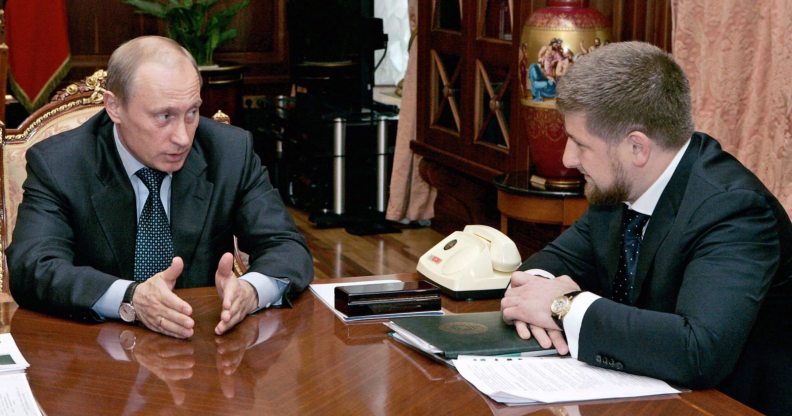
Russian President Vladimir Putin with Chechen leader Ramzan Kadyrov (Getty)
Refugees fleeing Chechnya’s anti-gay purge are too traumatised to speak about their sexuality and risk being sent back, an LGBT asylum group has said.
A lifetime of oppression and the fear of violent retribution is leaving refugees terrified to tell authorities they are gay, even after they have left the Chechen Republic, according to Dutch group LGBT Asylum Support.
Others fear their sexuality being confirmed by foreign authorities will put their relatives back home at risk.
Chechnya was condemned by world leaders and LGBT activists in 2017 after news of “gay concentration camps” in the republic reached the international press.
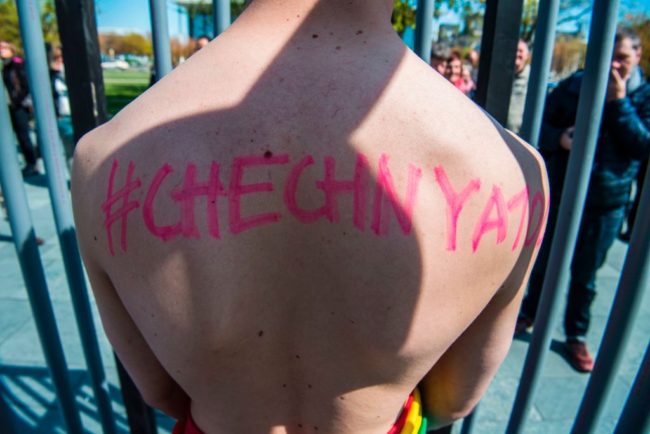
Activists protest the “gay genocide” in Chechnya (Getty Images)
One refugee, who goes by the adopted name Abdul Kadr, admitted he could not bring himself to tell officials about his sexuality even if it meant he would be sent back to his death.
“I couldn’t overcome my fear and give them details, even if it meant my life was hanging by a thread,” he told NPR. “I was terrified.”
Mr Kadr’s wife found out he was gay when relatives attempted to murder him at their family home in Grozny, Chechnya.
Family members discovered he was in a secret eight year relationship with another man and set out to kill him in the home he shared with his wife and four children.
Despite the shock, his wife fought to save his life and helped him escape the relatives and flee Chechnya.
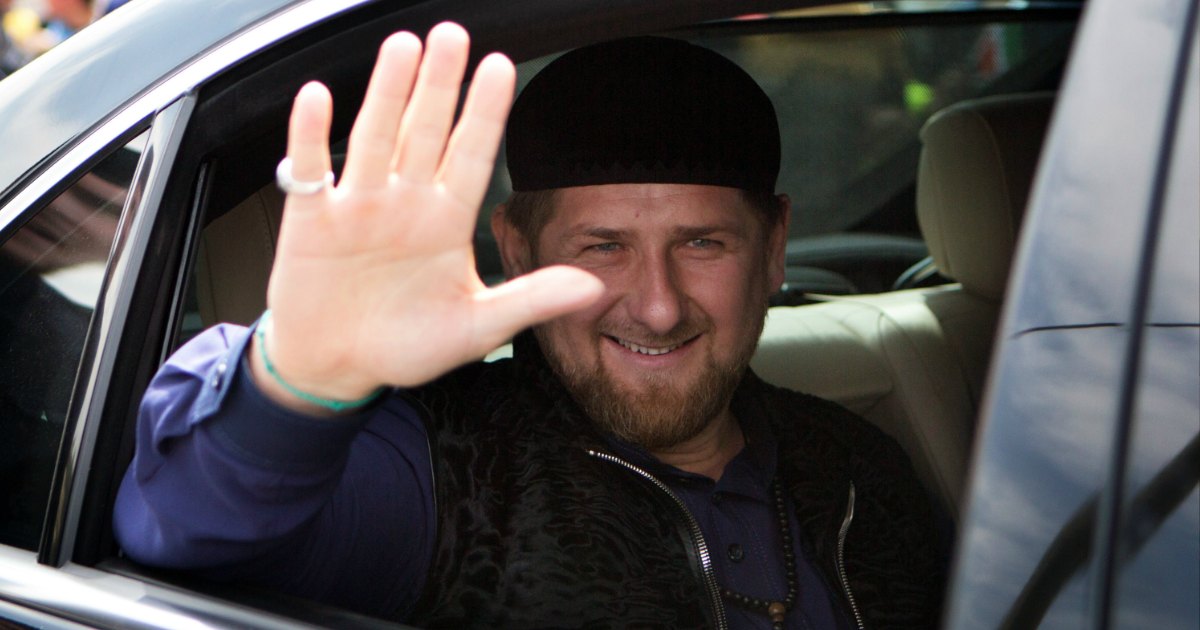
Chechen President Raman Kadyrov (Getty)
“When it comes to their homosexuality, they just don’t know how to talk. They are still afraid,” Elias Karam, a project manager at Secret Garden, a help group for traumatised refugees, told NPR.
The Netherlands is one of only a handful of countries to take in Chechen refugees, but does not formally record whether someone is LGBT in data.
Annick Oerlemans, a Dutch asylum officer, said: “It can be, for example, that people have not given credible statements regarding their identities or nationalities. It’s really an individual assessment in every individual case.
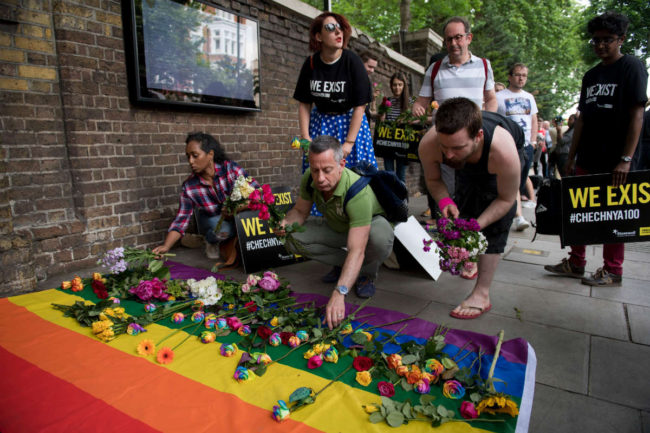
Demonstrators outside the Russian Embassy (Justin Tallis/AFP/Getty Images)
“We have interviews with LGBT asylum-seekers basically every day, I think. And we’re actually trained to make people feel as comfortable as we possibly can in order to get them to speak.”
A refugee in Germany who fled the republic after coming out as gay publicly revealed he was shamed and forced to take back his comments on national television.
Mover Eskarkhanov received death threats and was forced to apologise to Chechen president Ramzan Kadyrov after he told Time magazine that he is gay.
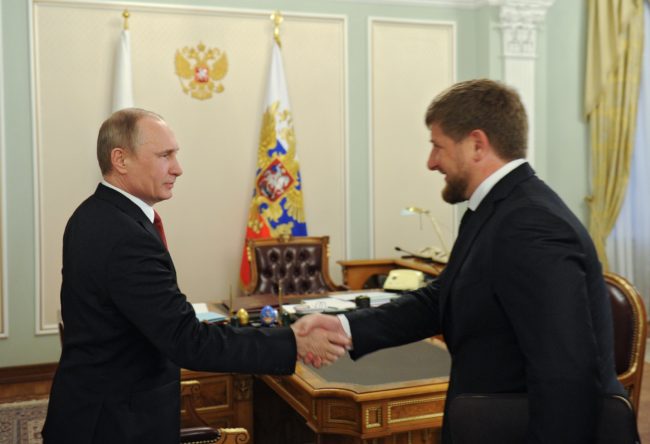
Russia’s President Vladimir Putin (L) shakes hands with Chechnya’s head Ramzan Kadyrov (Photo MIKHAIL KLIMENTYEV/AFP/Getty Images)
He told Time: “They tell me that a demon lives inside me. It’s getting worse here. Before somebody kills me, I want to tell my story to the world.”
Following the interview, authorities forced him to apologise on national television, claiming his “coming out” was made under the influence of epilepsy medication.
Chechens were told Mr Eskarkhanov is mentally ill and that he had been brainwashed by Westerners.
“They disgraced me before the Chechen people and the Chechen leader, I was framed,” he told Grozny TV.
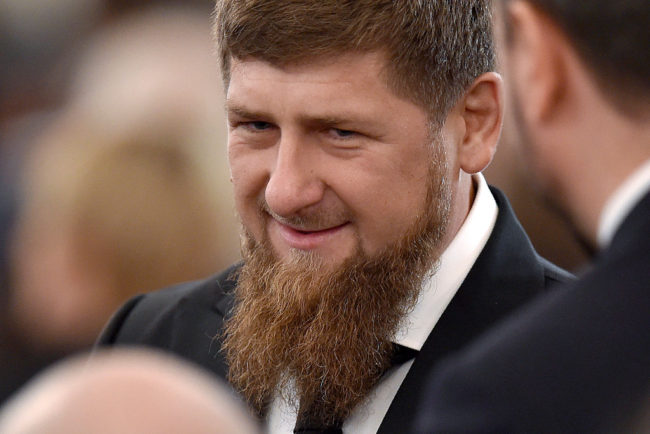
Chechnya’s leader Ramzan Kadyrov (Getty)
“That’s why I apologise to the residents of Chechnya, the leadership of Chechnya, the Chechens living in the North Caucasus and Europe.”
The report labeled him as a “mentally-ill person” and blamed the Western media for sensationalising his story.
He is now living as a refugee in Germany, having been forced out of his homeland.
“They made it clear that if I continue to talk, there would be problems,” he told Kavkazsky Uzel.
“They said that I must first think about my family.”
Another victim, Maxim Lyapunov, described being held for 12 days in a blood-soaked cell, beaten with sticks and humiliated by police in a shocking report.
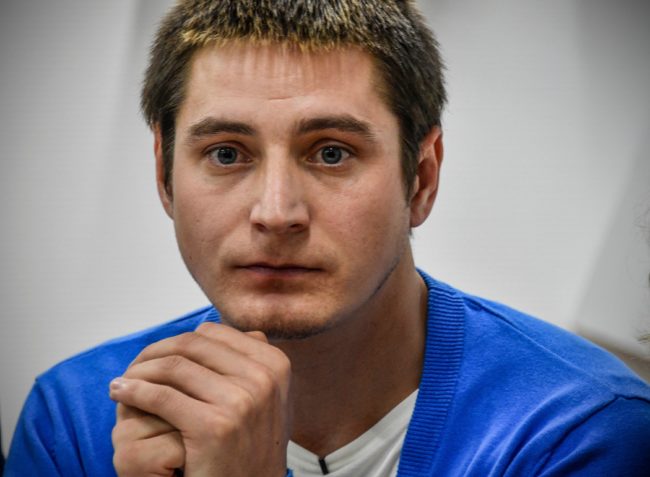
Openly gay Maxim Lapunov, 30, gives a press conference in Moscow on October 16
The 30-year-old says he was grabbed by two men in the middle of the night and dragged into the back of car.
Despite reporting his lengthy ordeal to authorities, Mr Lapunov says there has been no investigation into what happened.
Instead police forced him to name another man, interrogated and beat him.
“They burst in every 10 or 15 minutes shouting that I was gay and they would kill me,” he said, speaking at a small gathering in Moscow convened by human rights activists reported by the BBC.
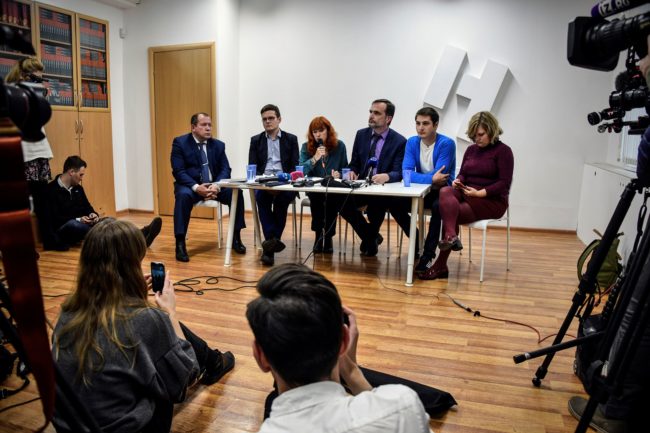
Openly gay Maxim Lapunov (2nd R), 30, along with human rights and gay rights activists
“Then they beat me with a stick for a long time: in the legs, ribs, buttocks and back. When I started to fall, they pulled me up and carried on,” he said quietly.
“Every day they assured me they would kill me, and told me how.”
Mr Lapunov says he was barely able to walk by the time police let him go.
“I could barely crawl when I left,” he told the human rights gathering, adding that the groans and screams of other detainees continue to give him nightmares.
“It should not be like this. We are all people. We all have rights,” he said.
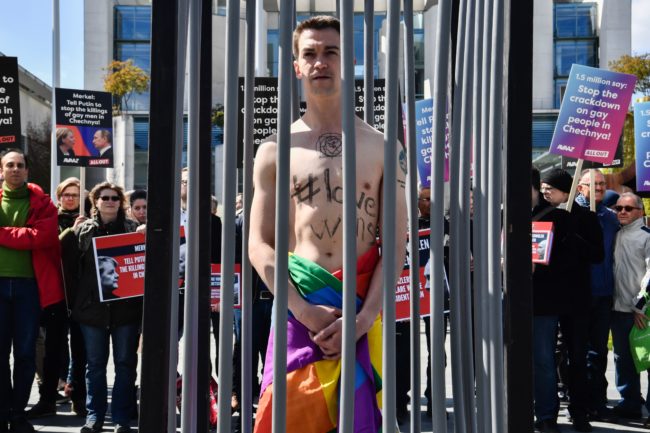
An activist stands naked, wrapped in a rainbow flag, in a mock cage in front of the Chancellery in Berlin (Photo JOHN MACDOUGALL/AFP/Getty Images)
“If those rights can be violated [in Chechnya], it could happen in any region. And no-one knows whose son or daughter will be next.”
The Russian LGBT Network has published reports of numerous testimonies from people who have experienced persecution and abuse in Chechnya.
Despite the testimonies, Chechen president Ramzan Kadyrov dismissed them as “nonsense” invented by “devils” and claims there are “no gays” in the state.

